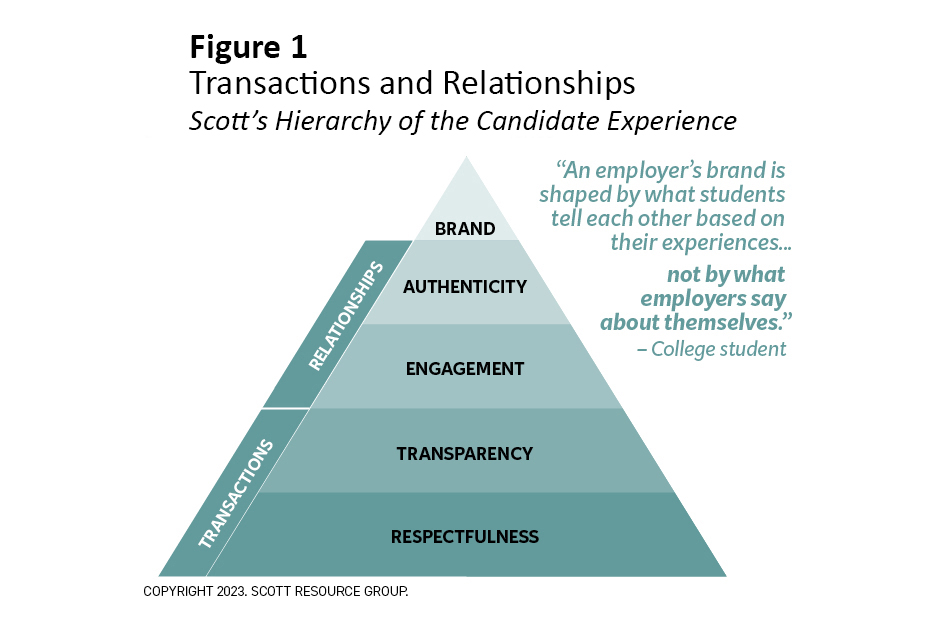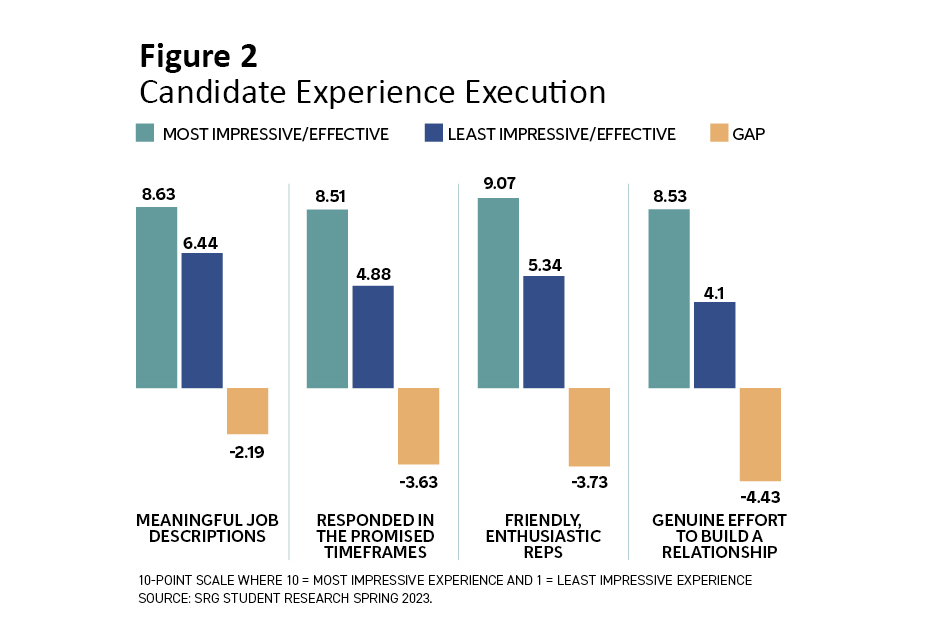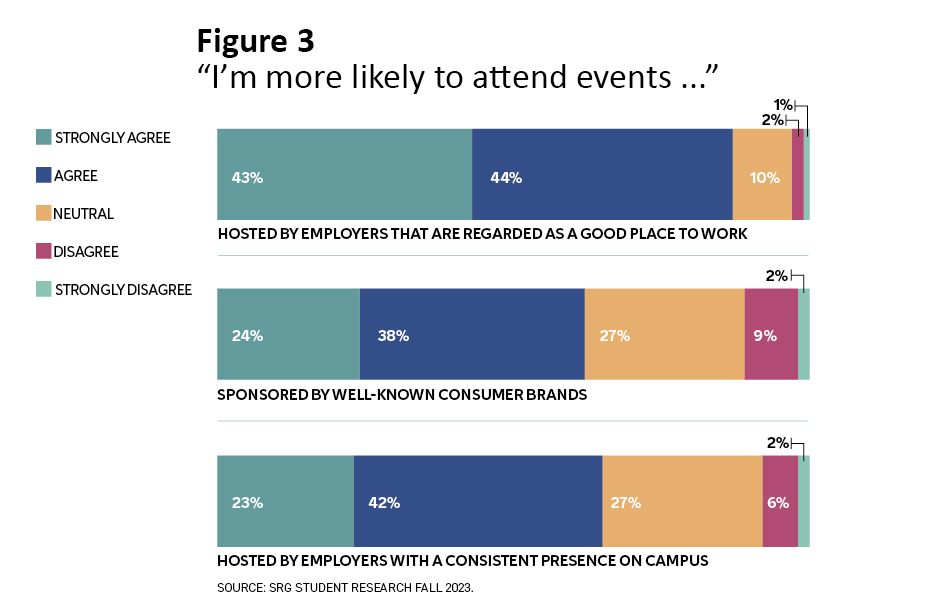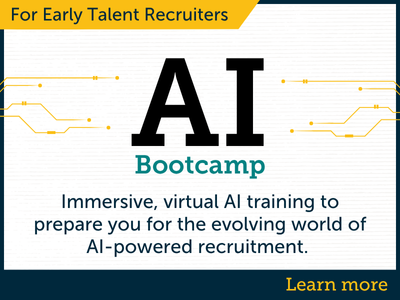“An employer’s brand is shaped by what students tell each other based on their experiences… not by what employers say about themselves.” College student
Developed by Mary Scott, founder of Scott Resource Group (SRG), the pyramid in Figure 1 is her visualization of the transactional and relationship components of the candidate experience.

Scott’s building blocks of the candidate experience are respectfulness, transparency, engagement, and authenticity, which apply to both in-person and virtual recruiting.
The Candidate Experience
For more about execution and the candidate experience, see Mary Scott’s article titled “Execution Is the Secret Sauce That Drives Successful University Recruiting Results.”When done right, execution—meeting or exceeding students’ expectations throughout their candidate experience—helps drive success in early talent recruiting.
SRG asked students about their “most and least impressive candidate experience” and found significant issues with::
- Creating meaningful job descriptions;
- Responding in the promised timeframe; and
- Having friendly, enthusiastic representatives.
Even more dire, students identified the biggest gap in employers making “a genuine effort to build a relationship.” (See Figure 2.)

“Why does any of this matter?” Scott asks. “Because as I’ve reported for as long as I’ve been researching students’ attitudes about their job search, their perceptions of how they’re treated throughout their candidate
experience has a powerful influence on employer brand as ‘a good place to work.’”
According to SRG research, students said that being perceived as “a good place to work” by other students and recent hires was clearly the most attractive employer attribute, significantly outdistancing having a “well-known consumer brand.” (See Figure 3.)

They also rated highly the ways employers treated them as a reflection of what it’s like to—and their desire to—work for an employer.
As Scott notes, these findings indicate the consequences execution can have for early talent recruiting.






